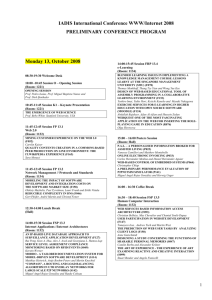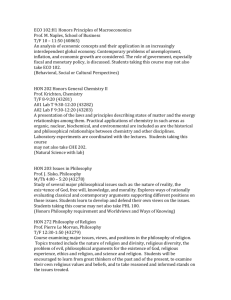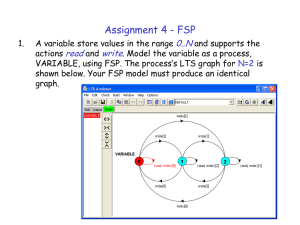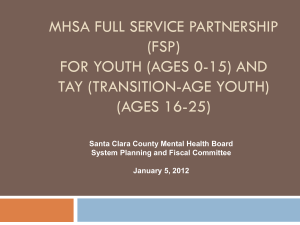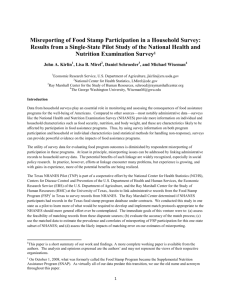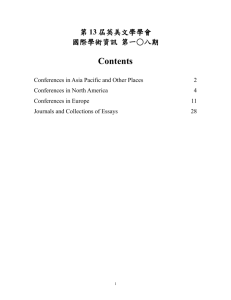Honors Courses - Fall 2012 HON 370:01 Jackson Pollack`s New
advertisement
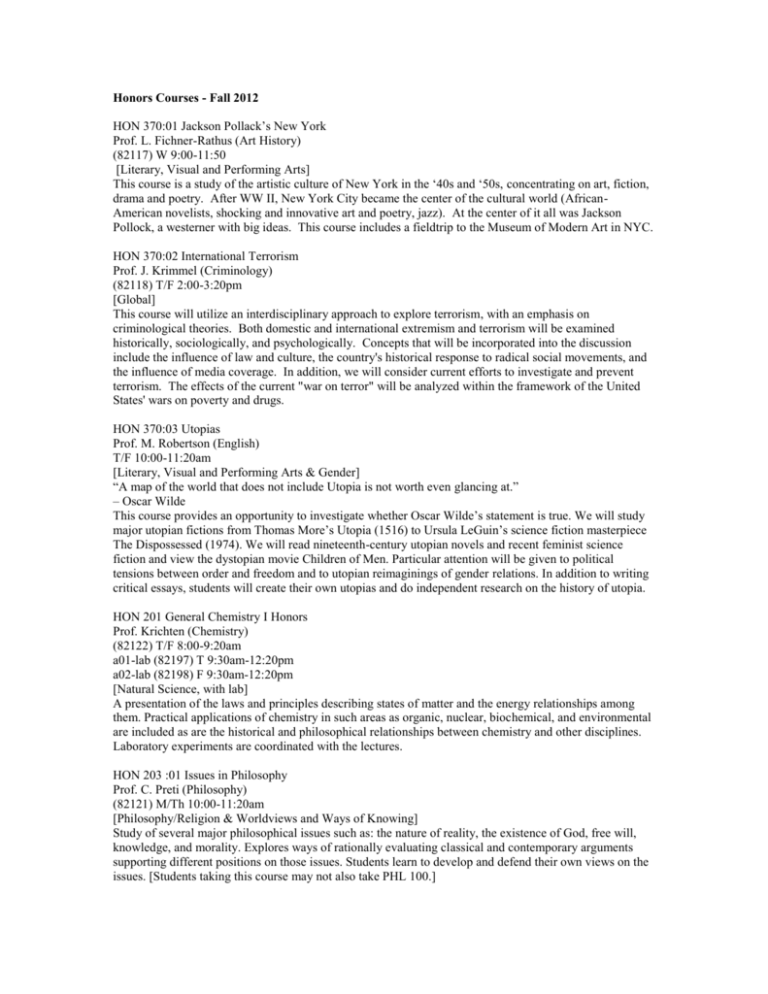
Honors Courses - Fall 2012 HON 370:01 Jackson Pollack’s New York Prof. L. Fichner-Rathus (Art History) (82117) W 9:00-11:50 [Literary, Visual and Performing Arts] This course is a study of the artistic culture of New York in the ‘40s and ‘50s, concentrating on art, fiction, drama and poetry. After WW II, New York City became the center of the cultural world (AfricanAmerican novelists, shocking and innovative art and poetry, jazz). At the center of it all was Jackson Pollock, a westerner with big ideas. This course includes a fieldtrip to the Museum of Modern Art in NYC. HON 370:02 International Terrorism Prof. J. Krimmel (Criminology) (82118) T/F 2:00-3:20pm [Global] This course will utilize an interdisciplinary approach to explore terrorism, with an emphasis on criminological theories. Both domestic and international extremism and terrorism will be examined historically, sociologically, and psychologically. Concepts that will be incorporated into the discussion include the influence of law and culture, the country's historical response to radical social movements, and the influence of media coverage. In addition, we will consider current efforts to investigate and prevent terrorism. The effects of the current "war on terror" will be analyzed within the framework of the United States' wars on poverty and drugs. HON 370:03 Utopias Prof. M. Robertson (English) T/F 10:00-11:20am [Literary, Visual and Performing Arts & Gender] “A map of the world that does not include Utopia is not worth even glancing at.” – Oscar Wilde This course provides an opportunity to investigate whether Oscar Wilde’s statement is true. We will study major utopian fictions from Thomas More’s Utopia (1516) to Ursula LeGuin’s science fiction masterpiece The Dispossessed (1974). We will read nineteenth-century utopian novels and recent feminist science fiction and view the dystopian movie Children of Men. Particular attention will be given to political tensions between order and freedom and to utopian reimaginings of gender relations. In addition to writing critical essays, students will create their own utopias and do independent research on the history of utopia. HON 201 General Chemistry I Honors Prof. Krichten (Chemistry) (82122) T/F 8:00-9:20am a01-lab (82197) T 9:30am-12:20pm a02-lab (82198) F 9:30am-12:20pm [Natural Science, with lab] A presentation of the laws and principles describing states of matter and the energy relationships among them. Practical applications of chemistry in such areas as organic, nuclear, biochemical, and environmental are included as are the historical and philosophical relationships between chemistry and other disciplines. Laboratory experiments are coordinated with the lectures. HON 203 :01 Issues in Philosophy Prof. C. Preti (Philosophy) (82121) M/Th 10:00-11:20am [Philosophy/Religion & Worldviews and Ways of Knowing] Study of several major philosophical issues such as: the nature of reality, the existence of God, free will, knowledge, and morality. Explores ways of rationally evaluating classical and contemporary arguments supporting different positions on those issues. Students learn to develop and defend their own views on the issues. [Students taking this course may not also take PHL 100.] HON 203 :02 Issues in Philosophy Prof. C. Preti (Philosophy) (82231) M/Th 12:30-1:50am [Philosophy/Religion & Worldviews and Ways of Knowing] Study of several major philosophical issues such as: the nature of reality, the existence of God, free will, knowledge, and morality. Explores ways of rationally evaluating classical and contemporary arguments supporting different positions on those issues. Students learn to develop and defend their own views on the issues. [Students taking this course may not also take PHL 100.] HON 243 International Studies: Africa Prof. M. Ismail (Sociology) (82382) M/Th 12:30 – 1:50pm [Global] This course explores the geographical, linguistic, economic, and cultural diversity of the Africa. More specifically it investigates the ‘Triple Heritage’ of Africa: studying the impact of ancient indigenous cultures, imported Semitic religions, and Western colonialism on Africans. Special attention will be given to current the issues of political instability, gender inequality and the persistent economic underdevelopment. ECO 101:H1 Honors Principles of Microeconomics Prof. D. Vandergrift (School of Business) (80169) T/F 10:00 – 11:50am [Behavioral, Social or Cultural Perspectives] An introduction to the analysis of price determination in product and resource markets under varying market structures in a capitalistic system. A research paper is required. Honors First Seminars Springsteen’s Lyrics as Literature Bruce Springsteen is arguably the most important American music artist, at least in the Rock genre, of the second half of the twentieth century. From his appearance the same week on the covers of Time and Newsweek in 1977, he has been hailed as more than just an entertainer. Like Bob Dylan before him, Springsteen has been recognized as a poet and short story writer working in popular music. In this class, the lyrics of Springsteen’s recorded songs are analyzed as examples of literary writing. Themes in his songs we examine include timeless universal issues such as growing up, love, death, political power, religious faith and doubt, etc. In addition, because of the upheaval of American society during Springsteen’s apprenticeship in the 1960s and his early career in the 1970s, we examine Springsteen’s lyrics for how they manifest cultural issues of these decades (e.g., Vietnam, civil rights movements, recession’s effect on the working class, etc.) and of the _80s and _00s as well (e.g., his 2002 album The Rising as a self-conscious response to 9/11). The course also treats albums as analogous to books, each with a unifying principle of theme or type of music rather than a random collection of Springsteen’s latest songs; thus, we study the albums in chronological order so that it will be possible to gain insights into the shape of Springsteen’s career and the development of the ideas and techniques in his oeuvre. This section of First Seminar is meant to appeal to anyone who is interested in the writing of Bruce Springsteen. Course #: FSP 101-H1 Professor: Konkle, Lincoln Day/s & Time/s: TF: 12:30 – 1:50 PM Word Virus: American Writing in the 1950s Kerouac, Salinger, Ginsberg, Baldwin, Pynchon, Bellow, Paley, Capote, Burroughs, Rich, Ashbery, O’Hara: in many ways American writing today is still very much in the shadow of the explosive creativity and vitality of the 1950s. In this seminar we will re-read seminal and perennial texts_The Dharma Bums, Franny and Zooey, Howl, The Crying of Lot 49_and many equally important, if less familiar, works, with special attention to the legacies of Fifties writing and culture in the present. Course #: FSP 101-H2 Professor: Row, Jess Day/s & Time/s: MR: 10 – 11:20 AM Irish Cinema An introduction to films made by Irish filmmakers. We will study certain aspects and important issues of 20th century Irish history and culture as represented in these films and consider Ireland’s place in the global landscape. Course #: FSP 104-H1 Professor: Byrne, Terrence Day/s & Time/s: T: 5 – 8:50 PM Morality, God, and Free Will This seminar is a philosophical examination of humanity’s quest to understand what it means to be human. Beliefs in morality, divinity, and free will are three of the things commonly cited as distinctive marks of being human. Most human beings take for granted that some actions are right and others wrong. Most think that they have the power to choose between right and wrong and are responsible for the choices they make. Many, if not most, believe in God or gods of one kind or another and assume that there are intimate connections between divinity, morality, and responsibility. Yet despite the prevalence of such belief among humans, morality, divinity, and responsibility are difficult to understand. For over two thousand years, philosophers have struggled to determine the nature of morality, the reality of God, and the relationship between free will and responsibility. Our task in this seminar is to examine and critique some of the most important insights and controversies that have emerged from their efforts. Course #: FSP 111-H1; FSP 111-H2 Professor: Kamber, Richard Day/s & Time/s: (FSP 111-H1) MR: 2 – 3:50 PM (FSP 111-H2) MR: 4 – 5:50 PM Buddhism and Hinduism In response to a strong interest in learning about Buddhism and Hinduism this seminar provides, in historical depth, a study of the evolution of the two religions. Through reading religious documents and literature, students learn the origins, reformations, and mutual borrowing of the two biggest religions in South Asia. They also explore the imprints of Buddhism and Hinduism on concepts of the universe and life and death in modern societies of the world Course #: FSP 114-H1; FSP 114-H2 Professor: Liu, Xinru Day/s & Time/s: (FSP 114-H1) TF: 12:30 – 1:50 PM (FSP 114-H2) TF: 2 – 3:20PM Understanding Modern Iran It’s hard to read an American newspaper or watch TV news without hearing the mention of Iran, and it is most often in a negative context. However, beyond the sound bites and political rhetoric, how much do you really know about the history, politics, culture and society of Iran, not to mention the history of US-Iranian relations? This seminar will use the lens of history, literature and film to move beyond media-based images to gain a more grounded understanding of the complex history of modern Iran from the late nineteenth century to the present day Islamic Republic through the eyes of those who have experienced that history. Over the course of the semester will examine issues concerning Islam, politics, revolution, gender, modernization, marginality, exile, and popular culture through reading and discussing background historical texts and novels and viewing Iranian films. Course #: FSP 134-H1; FSP 134-H2 Professor: Gross, Jo-Ann Day/s & Time/s:(FSP134-H1) M: 2 – 5:30 PM (FSP 134-H2) R: 2 – 5:30 PM


